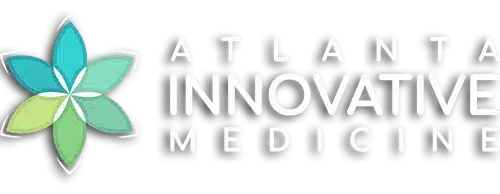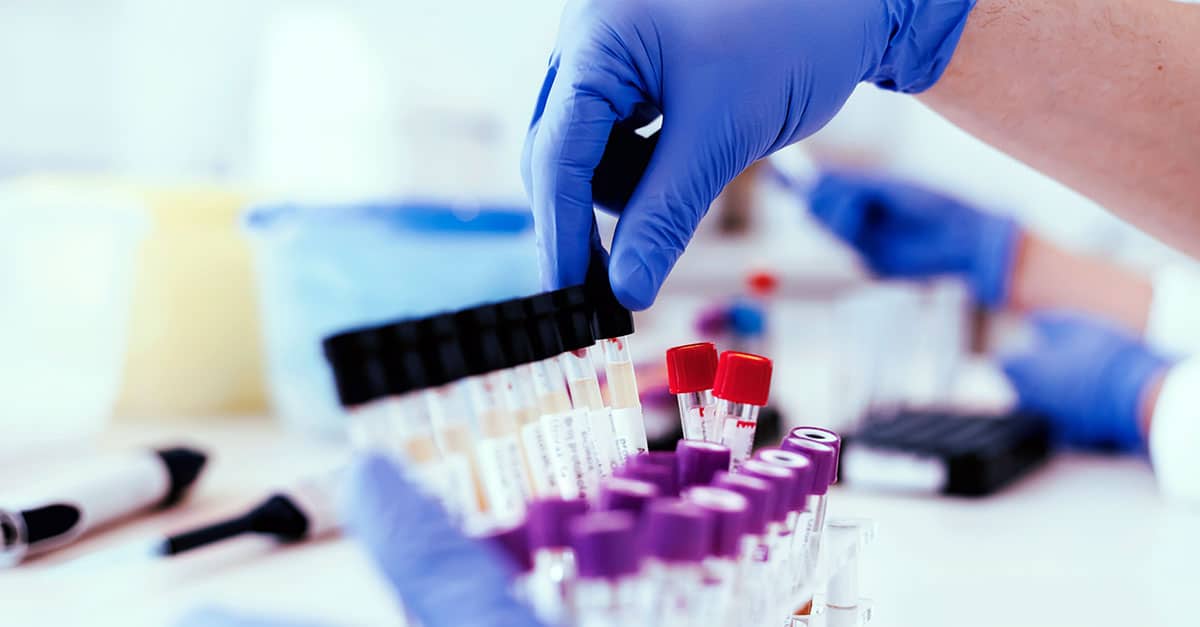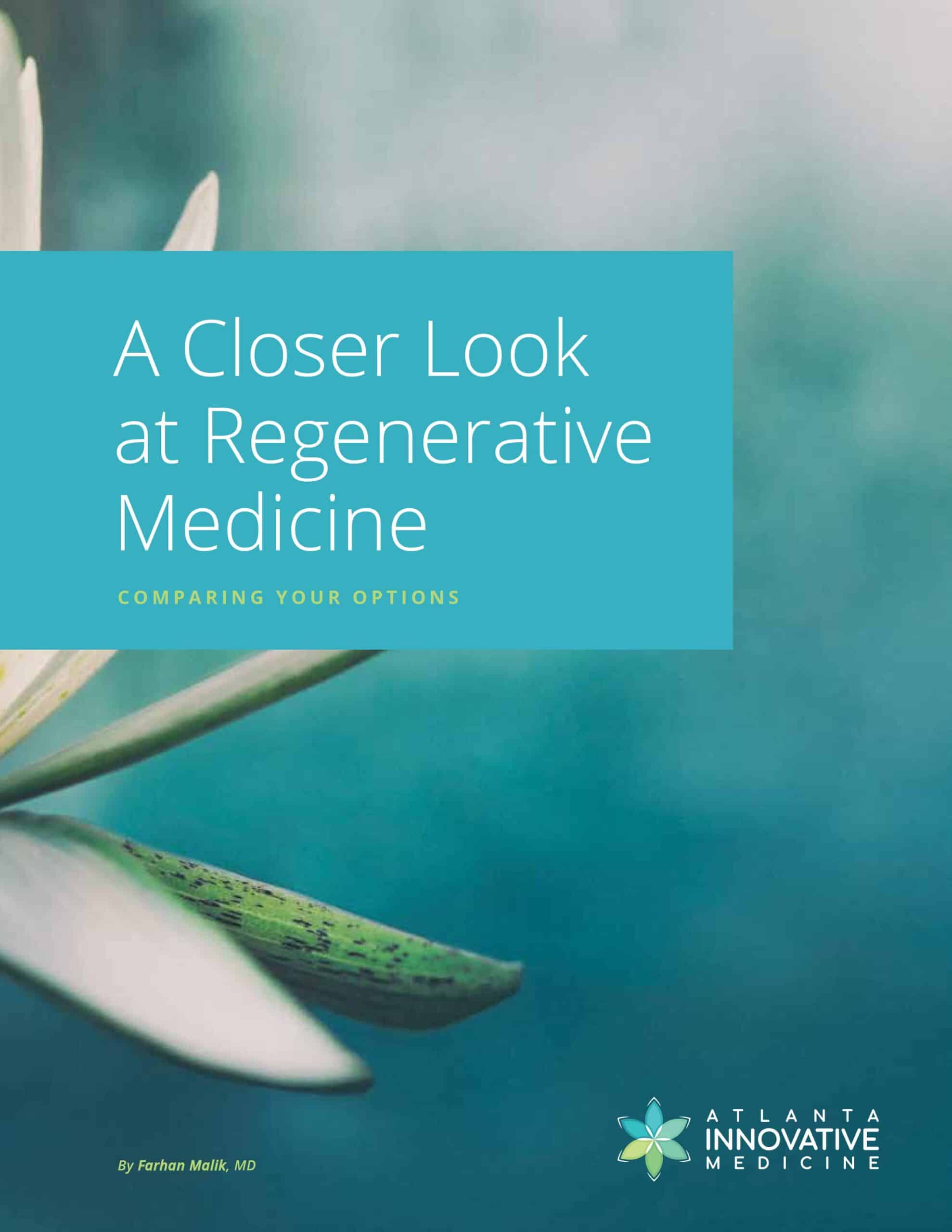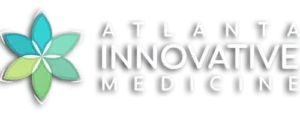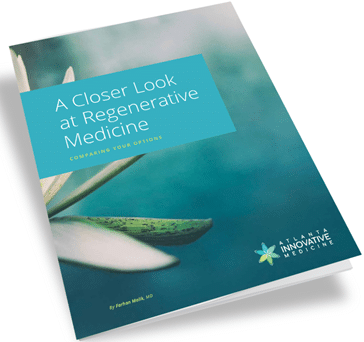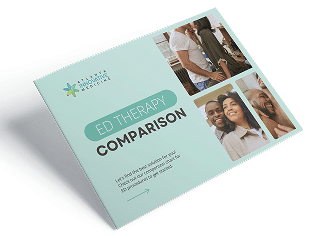By Farhan Malik, MD
Atlanta Innovative Medicine
When you’re dealing with chronic pain, you want answers. Fast.
For the 31 million Americans dealing with osteoarthritis—the most common cause of disability in adults—or another painful joint condition, stem cell therapies offer an alternative to the side effects of drugs or the risks of surgery.
Sure, medications may temporarily help reduce inflammation and pain. But it’s only temporary—and the dangerous, toxic nature of many drugs can prove damaging and counterproductive.

Surgery may be on your radar, but you likely have concerns about more than just the discomfort of going under the knife. The potential risks of dangerous side-effects might outweigh the potential benefits—and even those might be in question. In a recent study, as many as 80 percent of orthopedic surgeries were found to be ineffective or fraught with negative long-term outcomes, including: joint replacement, arthroscopic cleaning, spinal fusion, and repairs for shoulder labrum and meniscus tears.
Can our treatments help your joint and spine damage?
3 Things to Know About Stem Cells
1. Natural healing potential — There are multiple sources of adult stem cells found in your body, including bone marrow or fat (adipose) tissue, and you can also receive stem cells from donor sources. A skilled medical team can harvest stem cells from highly concentrated areas in the body, concentrate the healing growth factors within the cells, and then inject the cells into a damaged joint or tissues, allowing the body to heal naturally.
2. For multiple conditions — Stem cell treatments have potential benefits for being a viable treatment option for treating or aiding recovery from many conditions and injuries, including:
- Osteoarthritis
- Rheumatoid arthritis
- Neck and back pain, commonly lower back pain
- Sciatica
- Tendinitis
- Torn meniscus
- Sprains, strains and broken bones
- Achilles tendinitis
- Rotator cuff tears
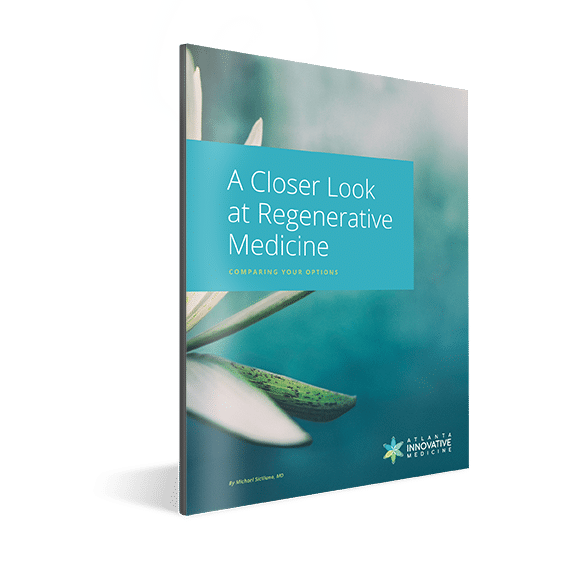
Subscribe for Expert Insights and Our Ebook
A Closer Look at Regenerative Medicine: Comparing Your Options Learn about treatment options like Platelet Rich Plasma (PRP), Prolozone Therapy, and Stem Cell Therapy.

3. Tailored for pain — Stem cell therapy injections provide a nonsurgical treatment option that can provide long-lasting relief from chronic joint pain. That’s because stem cells decrease nerve damage and the formation of scar tissue. These cells are able to mobilize around the site of an injury to repair nerve damage, improve muscle control and restore function and mobility. Not only do stem cells work to reduce the pain and inflammation associated with these conditions, they also can work to repair and regenerate the damaged tissues of the body.
The sooner you can treat joint pain, the better the odds of successful outcomes. Because when a person has less inflammation and pain, they function better. And a joint or spine issue that is not treated properly will generally get worse over time.
Next Step: Learn If Stem Cell Therapy Is Right For You
Are you looking for treatment options for joint pain that help you stay active—without the side effects of drugs or risks of surgery? Contact the experts at Atlanta Innovative Medicine for a complimentary consultation and find out if you are a good candidate for stem cell therapy or another nonsurgical approach to reducing joint pain and fostering healing.
Quizzes
Are you a candidate for Regenerative Medicine?
Regenerative medicine can be an effective therapy and treatment option for lasting pain relief for a variety of conditions like osteoarthritis of the knee, hip or shoulder; ACL or meniscus tears; tennis or golfer’s elbow; chronic neck and back pain; and more.
Is it right for you and your condition? Take 1 minute to answer a few “yes or no” questions that help to assess if you might be a candidate for PRP, stem cell or other nonsurgical regenerative treatments.
Are You a Stem Cell Candidate for Your Joint or Spine Damage?
Are you a candidate for Platelet Rich Plasma (PRP) Therapy?
Do I have nonsurgical options for my injured or aging joints?
Take the Pain Medications Risk Quiz
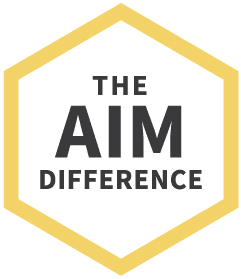
Regenerative Medicine.
Reimagined
- Advanced hybrid therapies, including Mesenchymal Stem Cell therapy combined with different mechanisms of action that synergistically come together to support ultimate healing
- More powerful PRP that’s customized, amplified and personalized
- Therapies delivered by an experienced, compassionate team comprised of multidisciplinary experts in traditional and alternative medicine working as your team: Medical Doctors, Nurse Practitioners, Physiotherapists and Chiropractors
- Advanced training through the American Academy of Orthopedic Medicine, the American Osteopathic Association of Prolotherapy Regenerative Medicine, and more
All content of this page is for informational purposes only and is not intended to serve as a substitute for the consultation, diagnosis, and/or medical treatment of a qualified physician or healthcare provider. Individual results may vary. Your medical professional can explain all the risks and potential benefits of any therapy based on your specific circumstances. At this time regenerative therapies are not FDA approved. Neither Atlanta Innovative Medicine nor its physician affiliates promise regenerative therapies as a cure for any condition, disease, or injury.
Other Atlanta Areas We Service:
© 2024 Atlanta Innovative Medicine, LLC. All Rights Reserved. AIM Scholarship Opportunity
